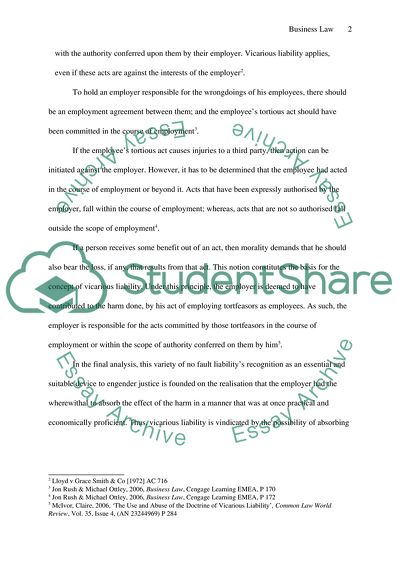Cite this document
(Vicarious Liability, Especially in Respect of New Appointees Assignment - 7, n.d.)
Vicarious Liability, Especially in Respect of New Appointees Assignment - 7. Retrieved from https://studentshare.org/law/1722828-business-law
Vicarious Liability, Especially in Respect of New Appointees Assignment - 7. Retrieved from https://studentshare.org/law/1722828-business-law
(Vicarious Liability, Especially in Respect of New Appointees Assignment - 7)
Vicarious Liability, Especially in Respect of New Appointees Assignment - 7. https://studentshare.org/law/1722828-business-law.
Vicarious Liability, Especially in Respect of New Appointees Assignment - 7. https://studentshare.org/law/1722828-business-law.
“Vicarious Liability, Especially in Respect of New Appointees Assignment - 7”. https://studentshare.org/law/1722828-business-law.


